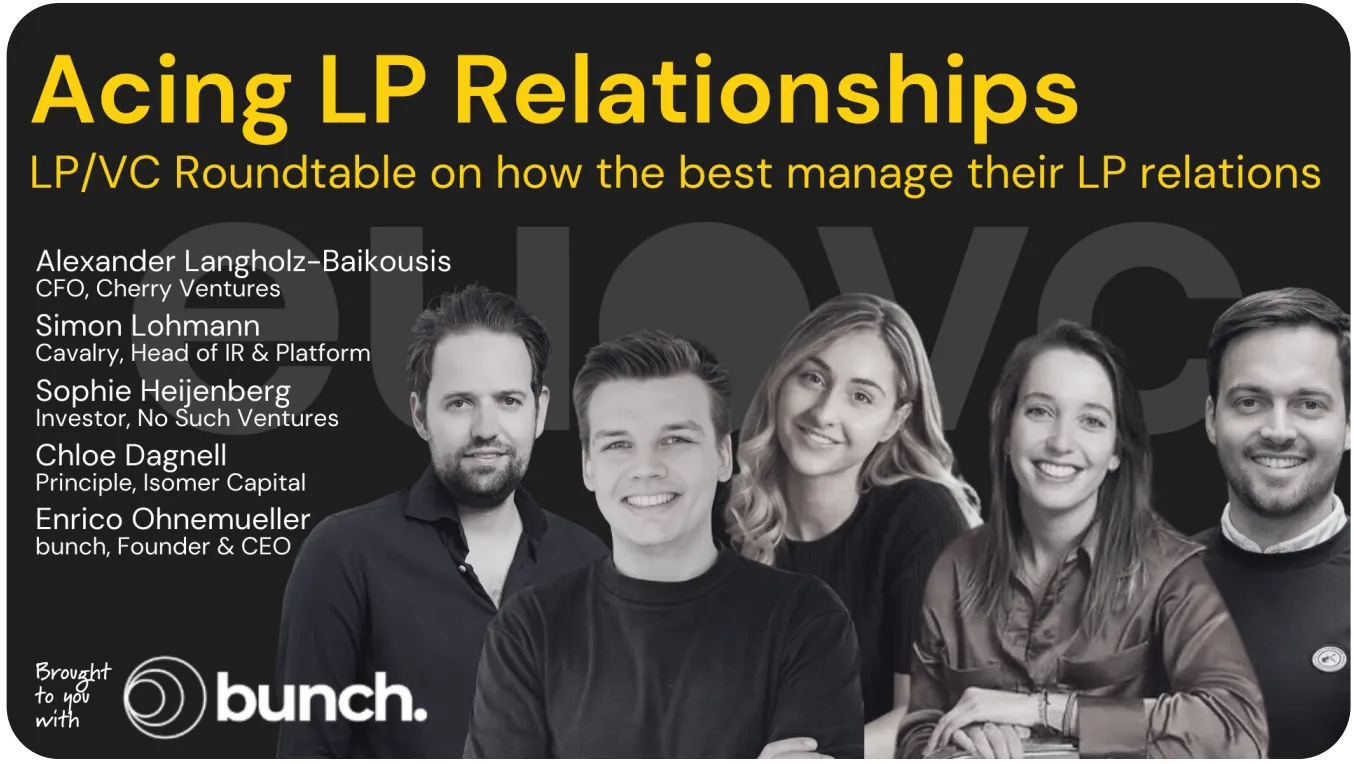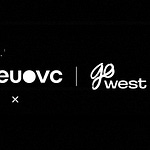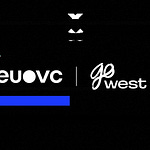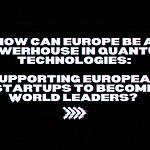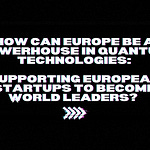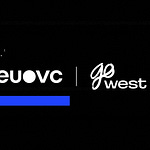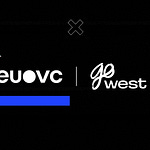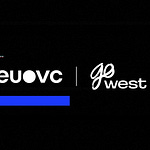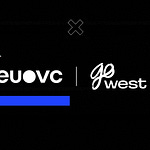Today we have Tom McGinn with us. Tom is the General Counsel of Northzone, a multi-stage venture fund with offices in London, Stockholm, NYC, Amsterdam and Berlin, that invests from seed to growth across Europe and the US.
Northzone closed a EUR 1 billion fund last year and has backed over 100 companies, including Spotify, Personio & Spring Health. Tom joined Northzone in 2021 from Cooley where he helped get the emerging companies team in Europe off the ground.
Listen to the pod on Apple & Spotify 🎧
Table of Contents | Scroll ⏬ for all the insights 👀
Episode chapters
Entreneurship as a blood sport
Building high-functioning startup boards
Biggest learnings from the GC of a top tier VC
Advice to younger self
Top tips for emerging managers fundraising
Most counterintuitive thing learned in venture
Uncommon belief
This episode is brought to you in partnership with … Tactyc
Tactyc is the leading forecasting and scenario-planning software for venture capital funds combining portfolio construction, portfolio management, forecasting and reporting into a unified platform.
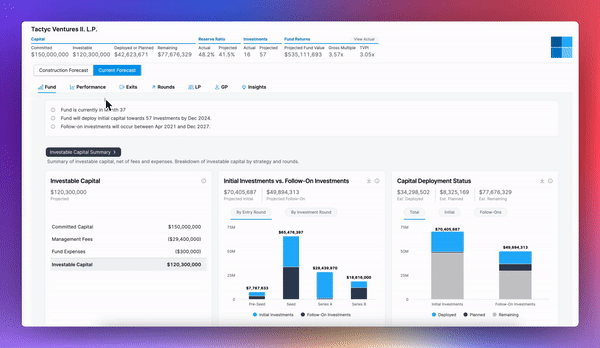
Chapters:
00:00:00 - Introduction and Guest Introduction
00:03:09 - Lessons Learned from a Startup Experience
00:06:23 - European Approach to Advising High Growth Companies
00:09:34 - The Future of AI in the Legal Space
00:12:37 - The Difficulty of Reversing Company Negativity
00:15:41 - Building a High-Functioning Board
00:18:33 - The Value and Potential Destruction of Board Members
00:21:32 - Founders Treating the Board as Employees
00:24:25 - Awareness of Misalignment
00:27:38 - Strategic alignment and good cultural fit
00:30:36 - Managing Investor Departures
00:33:49 - Exceptional Leadership and Shoutouts to Female Founders
00:36:56 - Key Learnings for Founders
00:40:12 - Misalignment and liquidation preference
00:43:15 - Management Carve Out and Incentivization
00:46:36 - Tips for Emerging VCs 00:48:54 - Professionalism Amidst Technical Difficulties
00:49:29 - Europe as a model for the world's new beginnings
Q: What’s your take on this statement by Sean O’Sullivan from SOSV: “Entrepreneurship is a blood sport”?
Couple of ways to interpret this - one is less controversial, the other more controversial; I’ll focus on the latter.
Less controversial: it’s super hard to scale a business; going from 0 to EUR 1m ARR is one thing; super hard to go from EUR 1m to EUR 10m; that’s when most companies fail
You need to shift your mindset from “let’s hustle and build traction” to “we need to win” - the best founders do this.
More controversial = it’s super hard to turn a company that’s developing negatively; once the rot has started, it’s tough to reverse
liquidation preference multiples lead to more liquidation preference multiples; negative emotions lead to more negative emotions; it’s a vicious cycle
I’ve seen profitable companies die because the stakeholders have lost trust in each other, leading to more and more focus on down-side protection at the cost of the common good; conversely, I’ve seen companies, in the same economic environment, and at a similar stage, but with worse performance metrics build clean rounds and capitalisation structures - the culture the founder sets at the board is often the difference.
Q: Give a shout-out to someone you love in the industry
Elena Pantazi, our talent partner - she’s carved out a super critical role at Northzone and is great to work with
Two female founders who are good friends of mine and can attest that “entrepreneurship is a blood sport” (per the controversial interpretation; they run happy stakeholder families). Their resilience is a regular inspiration to me:
Zeena Qureshi, founder of Sonantic, which sold to Spotify last year - she’s an angel and great sounding board / therapist for the founders she works with
Deirdre O’Neill, founder of Hertility, who I used to share an office with - she’s a marketing genius and one of the funniest people I’ve ever met
Being half Hungarian and bullish on CEE - Fiedler Capital guys, Robert Hegedues and Jordan Bocskov.
Q: What’s your key advice on building a high-functioning startup board?
Lack of understanding among founders and investors around what an effective board should look like and how to build it
Many founders see board meetings as a time sink + treat meetings as a state of the union, just run through board pack
Investors can provide real value by helping founders build - and maintain - a high-functioning board
What creates a high-functioning board isn’t structural, but social and boils down to the founder creating a culture of transparency, collaboration & frankness
Throughout a company’s life cycle you can make structural changes to foster effectiveness (e.g. bring in a chair, create sub-committees; change the cadence & duration of meetings etc.), but generally speaking, the high-functioning boards have this culture
Laura McGinnis at Balderton created an excellent 101 guide covering some of these structural changes + how to run board meetings, with some helpful checklists
Tips for founders to create the right culture:
Building trust with investors – be honest about your weaknesses, gaps in knowledge + what’s not going well; two-way street – investors should give founder the benefit of the doubt; Fred Destin talked about this on the podcast over the summer
Encourage frank debate and unfiltered debate
Force decisions and create collective accountability - post meeting create a clear overview of what was decided + the risks associated with those decisions; ensure that eyes are wide open
Avoid battle of the egos - meeting is your time (the board pack is the investors’ time); stick to agenda militantly; at some point, a chairman can help with this
Tips to foster board effectiveness:
Be aware of misalignment among investors (e.g. is someone pushing for a sale because they need DPI; is there a strategic involved; where is the fund in its fundraising process) – I send a chunk of founders I work with Scott Kupor’s “Secrets of Sandhill Road”
Use each fundraising as an opportunity to level up the board - this often doesn’t get done; board is just rolled forward, with the new lead investor added; if you don’t do this at the term sheet stage (when you can use the new money as a forcing mechanism), you probably won’t at all
Boards should self-evaluate annually (focus on board, subcommittees and individual directors); candid interviews, led by independent director / chair; use as opportunity to refresh benchmarks
Don’t become orphaned; make sure you have relationships with different members across a fund, in case your contact leaves
Create diversity – 45% of European startup boards don’t have a female board member; Sarah Drinkwater talks a lot about this, make sure to follow!
Reduce people in room; limit the number of observers / ask them to dial-in off camera observers to dial-in
Create vehicle for engagement outside of board meetings
Q: 3 biggest learnings from the general counsel of a tier 1 fund to the rest of the European VC community
Misalignment kills companies
Misalignment is a natural byproduct of growth
Super important to mitigate misalignment and reduce the risk that the misalignment will cause real damage (e.g. the company being unable to raise a round / exit). Ways to do this include:
A US-style horizontal liquidation preference rather than a European-style vertical liquidation preference; example - Hopin
Be cognizant of what drives your investors and potentially conflicting incentives among investors - make sure board is strategically aligned from day 1 + address such conflicts across your governance documents (e.g. make sure your strategic investor doesn’t have a backdoor veto over a financing)
Low decision making thresholds across your governance documents
Making sure that a founder’s board and control rights are linked to the founder being an employee / providing services to the company - this is the norm in the US (and increasingly the UK), but not in the rest of Europe
Keep things simple
Occam's razor, goes for both founders & investors.
Keep your governance and capitalisation structures simple
Avoid trying to solve corner cases or re-inventing the wheel, go with what's standard and broadly works; strive for rough justice
Harder in jurisdictions where you don't have standard form investment documents (which is the case in the vast majority of Europe, unfortunately)
Across Europe, it’s worth considering incorporating as a Delaware company (particularly if you’re based in Eastern Europe / countries where the law is super rigid (e.g. requires that every single shareholder signs off every time you issue shares); had this discussion a lot at How To Web
Respect the fact that the founders business is an extension of themselves.
Q: What advice would you give your 10 year younger self?
Figure out whether you want to be an advisor or an operator
If you want to be an advisor, gain a lot of different experiences; if you want to be an operator build something over a period of time
Q: What are your top tips for emerging VCs across Europe who are fundraising?
A lot of listeners are emerging fund managers - my advice would be to get to your first close at all costs (even if it involves needing to take money subject to more control that you’d like) and bring in the rest via 12 months
Also consider warehousing as a way to help LPs de-risk their decision
Q: What’s the most counterintuitive thing you’ve learned in venture?
Your legacy is your wins; your reputation is how you manage your loses
at an early-stage fund, from a pure returns perspective, you’re not incentivised to spend time with companies that won’t move the needle for your fund, so investor that do do that are a credit to our community
in my role I spend a chunk of time with companies like that, but we owe it to our founders, companies and co-investors (and you can form incredibly rewarding relationships as part of that)
Q: What do you believe that most people around you disagree with you on?
“Three founders become two” - three founders is a tough dynamic, particularly as the company scales.
Upcoming events
📺 Virtual events we’re hosting
Acing LP Relationships | Feb 12, 2024, 12:00 PM - 1:00 PM
The O.G. Roundtable of the Year | Jan 29, 2023, 12:00 PM - 1:00 PM
Data-Driven Portfolio Modeling | Jan 17, 2024, 12:00 PM - 1:30 PM
🤝 In-person events we’re attending
Hit us up if you’re going, we’d love to connect!
GoWest | 📆 6 - 8 February | 🌍 Gothenburg, Sweden
Odense Investor Summit | 📆 13 - 15 March | 🌍 Odense, Denmark
SuperVenture | 📆 4 - 6 June | 🌍 Berlin, Germany
Nordic LP Forum & TechBBQ | 📆 September | 🌍 Copenhagen, Denmark
North Star & GITEX Global | 📆 14 - 18 Oct | 🌍 Dubai, UAE
GITEX Europe 2025 | 📆 23 - 25 May 2025 | 🌍 Berlin, Germany





